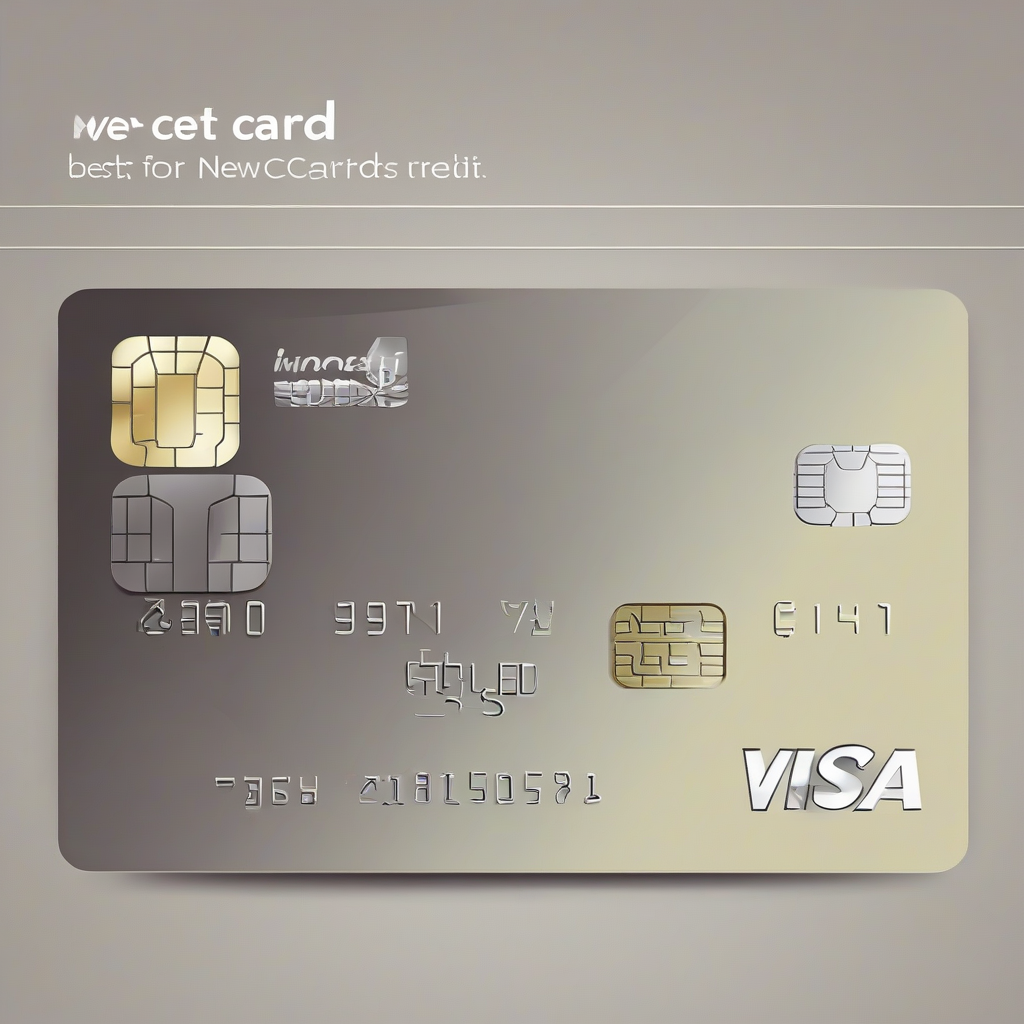Unlocking Financial Freedom: The Best Credit Cards for New Credit
Building credit can feel like navigating a maze, but securing your first credit card is a crucial first step towards financial independence. This guide explores the best credit cards specifically designed for those just starting their credit journey. We’ll examine key features, benefits, and potential drawbacks to help you make an informed decision.
Understanding Credit Cards for New Credit
Credit cards for individuals with no credit history, or “thin” credit, often come with different features compared to cards aimed at those with established credit. These differences are designed to help new cardholders build positive credit habits responsibly. Key aspects to consider include:
- Credit Limit: Expect lower credit limits initially. This is a protective measure to prevent overspending and potential debt accumulation. As you demonstrate responsible credit use, your limit may increase over time.
- Annual Fee: Many secured and student credit cards waive annual fees, making them budget-friendly options. Always review the terms and conditions to confirm this.
- Interest Rates (APR): Interest rates (APR) are usually higher for cards designed for those with limited or no credit history. This reflects the higher perceived risk for the issuer. Focus on paying your balance in full each month to avoid accruing interest.
- Rewards Programs: While some cards offer rewards, they might be more modest compared to cards with higher credit limits. Prioritize responsible credit building before focusing on significant rewards.
- Security Features: Look for cards with robust security features like fraud alerts and zero liability protection.
Types of Credit Cards for New Credit
Several types of credit cards are well-suited for individuals building credit:
Secured Credit Cards
Secured credit cards require a security deposit, which typically becomes your credit limit. This deposit mitigates the risk for the issuer, making approval more likely. Upon responsible use, you can often graduate to an unsecured card with a higher limit.
- Pros: High approval rates, builds credit history, provides a safety net.
- Cons: Requires a security deposit, may have lower credit limits initially.
Student Credit Cards
Specifically designed for students, these cards often feature lower credit limits, competitive interest rates (relative to other new-credit cards), and may offer educational resources to help build financial literacy. They are a good option for college students who are establishing credit.
- Pros: Tailored to student needs, often offer educational resources.
- Cons: May have limitations on spending and credit limits.
Credit Builder Loans
While not strictly credit cards, credit builder loans are a valuable tool for building credit. You make regular payments, and the lender reports your payment history to the credit bureaus. These loans often have lower interest rates than credit cards and can improve your credit score faster.
- Pros: Improved credit score, often lower interest rates than credit cards.
- Cons: Not a credit card, may not offer same flexibility.
Retail Store Credit Cards
Retail store credit cards are issued by specific retailers and are often associated with rewards programs at that particular store. While they can build credit, they often come with high interest rates and limited usage.
- Pros: Easier approval for new credit users, rewards at specific retailer.
- Cons: High interest rates, limited usage, can easily lead to overspending.
Factors to Consider When Choosing a Card
Beyond the card type, consider these factors:
- Interest Rate (APR): Aim for the lowest APR possible. Remember to pay your balance in full each month to avoid accruing interest.
- Annual Fee: Choose cards with no annual fee, especially when starting out. Fees can eat away at your savings.
- Credit Limit: Start with a manageable credit limit to avoid overspending. Your credit limit is a crucial factor in your credit utilization ratio (a key part of your credit score).
- Rewards Programs: While rewards are attractive, prioritize building credit responsibly. Don’t let rewards tempt you into spending more than you can afford.
- Fees: Be aware of any additional fees, such as late payment fees, over-limit fees, or foreign transaction fees. Avoid accumulating fees by paying on time and staying within your credit limit.
- Customer Service: Choose a credit card issuer with excellent customer service, in case you need assistance with your account.
Building Good Credit Habits
Choosing the right credit card is only the first step. Building good credit requires consistent, responsible behavior. Here are essential habits to cultivate:
- Pay on Time, Every Time: This is the single most important factor affecting your credit score. Set up automatic payments to ensure timely payments.
- Keep Your Credit Utilization Low: Aim to keep your credit utilization ratio (the amount of credit you use compared to your available credit) below 30%. A lower ratio signals responsible credit management.
- Monitor Your Credit Report: Regularly check your credit report for errors and to track your progress. You can obtain a free credit report annually from each of the three major credit bureaus (Equifax, Experian, and TransUnion).
- Avoid Applying for Multiple Cards at Once: Applying for too many cards in a short period can negatively impact your credit score. Space out your applications.
- Gradually Increase Your Credit Limit: As your credit history improves, you may qualify for higher credit limits. This can help lower your credit utilization ratio.
- Understand Your Credit Score: Familiarize yourself with how credit scores work and what factors influence them. This knowledge will empower you to make informed financial decisions.
Conclusion (Omitted as per instructions)

